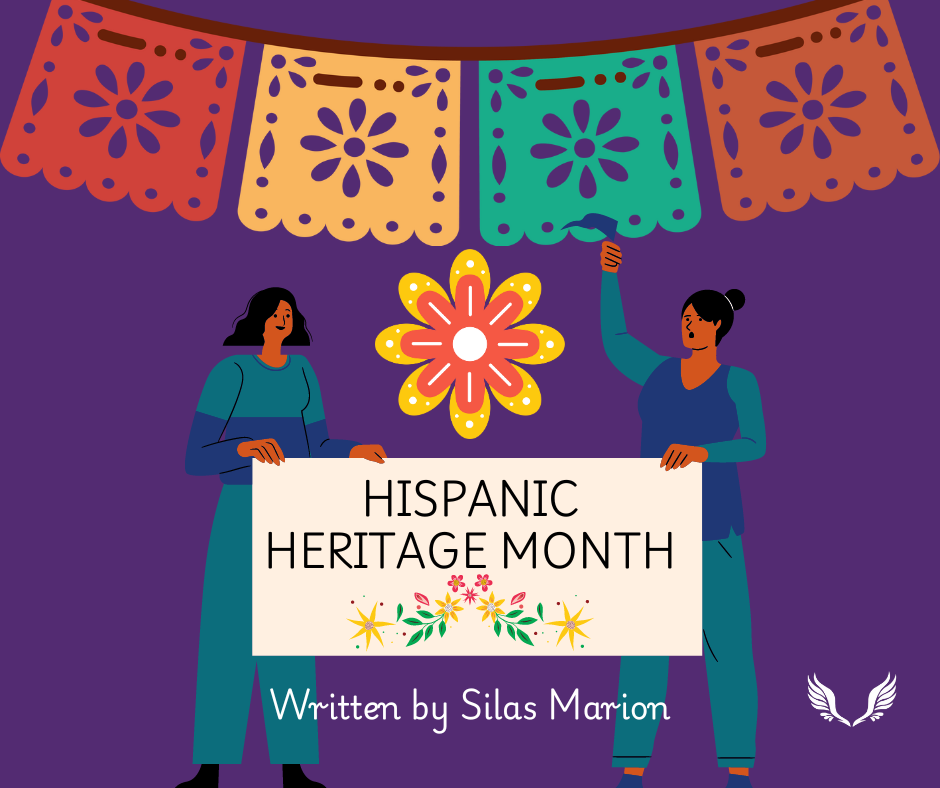That’s right, as you might already have heard about through social media or the news, this month, America is celebrating Black History, a celebration of African American history, culture, and achievements. Read on to find out how Black History Month started, why it’s important, and what you can do to celebrate!
What is Black History Month?
Since 1976, African American History has been celebrated annually in America. Carter G. Woodson originally designated a week in February to celebrate Black History, but it has since evolved to last the entire month.
Woodson believed that “Those who have no record of what their forebears have accomplished lose the inspiration which comes from the teaching of biography and history.” He wanted young African Americans to be inspired by their predecessors who have been too often removed from the broader perspective of history.
It is true that traditional American History is told mainly from the perspectives of white Americans and does little to amplify the voices of other races. Black History Month is a necessity for all Americans, regardless of skin color, because only by fully understanding the past and present struggles and achievements of Black people can America truly become a diverse and accepting society.
Why is Black History Month important to Davie High School staff?
Davie High School counselor Ms. Hayes believes Black History is important because it allows People of Color to be seen as “competent, noteworthy, and a valuable part of American society.
“It is important to celebrate so that our voices are heard, our accomplishments are recognized, and to continue breaking the stigma and negative stereotypes that are attributed to POC,” Ms. Hayes says.
Assistant Principal Alvin Rubin has a similar belief about Black history. “This is History that all need to know about to understand the importance and contribution of all citizens,” he says. “This will build the confidence and patriotism for a greater number of American citizens knowing the contribution all cultures have on the building of America.”
For Black folks, February is a time to feel proud of their culture and history that is often taken for granted. Demario Reid, another AP at Davie, believes that Black History Month is important because it puts a spotlight on his heritage and history. “In spite of the hardship and tortures that African Americans have faced and are continuing to face, we’ve overcome a lot, and it is worth celebrating our legacy, and history,” he says. “I celebrate it daily by being a PROUD Strong Black Man.”
Gina Hayes shares Reid’s sentiments. “Personally, I use Black History Month to learn more about the unsung [heroes] of the past and present who have persisted in spite of a system designed to make them fail,” she says. “It makes me proud and pushes me to continue making change in my community.”
Learning about the underappreciated and underrepresented Black heroes, innovators, and entrepreneurs who have made vital contributions to American society is a key part of Black History Month. The Oprah Magazine has an awesome list of important Black Americans that you should consider checking out!
How should I celebrate Black History Month?
Reading books by Black authors, watching movies highlighting Black Culture, listening to music by Black artists, following Black influencers on social media, and researching important moments in Black History are all ways to celebrate and immerse yourself in Black culture this February.
Our fantastic administrators at Davie High have shared a few of their favorite books and movies by Black authors and filmmakers that are great resources for learning about Black culture.
From Demario Reid
Coming to America (1988)
Black Panther (2018)
“The reason I [recommend] these movies is because they give a depiction of Black Royalty and Excellence in many ways,” Reid says.
From Alvin Rubin
Novels by Langston Hughes, especially Black Nativity
Novels by James Baldwin, especially I Am Not Your Negro
Novels by Maya Angelou, including I Know Why the Caged Bird Sings
Books and movies from the Harlem Renaissance (a list can be found here)
From Gina Hayes
Uncomfortable Conversations With a Black Man by Emmanuel Acho (also podcast of the same name)
Spike Lee movies (a list of Spike Lee movies from Insider can be found here)
Black Lives Matter category on Netflix
“[Uncomfortable Conversations With a Black Man] is a great book to read…that answers the hard questions about race,” Ms. Hayes says. “[The] Black Lives Matter category…has a variety of great movies that one can watch to learn more about Black history, culture, and music.”
Along with its list of significant Black people in history, Oprah Magazine has a huge gallery of resources for celebrating Black History Month, which can be found here. A few highlights of this gallery are “44 Books by Black Authors,” “25 Civil Rights Leaders of the Past and Present,” and “52 Best Black Movies on Netflix Right Now.”
Music is another crucial part of Black culture and history. Some of the most famous and influential songs ever written have been by Black artists, such as Marvin Gaye’s “What’s Goin’ On,” Aretha Franklin’s “Respect,” and Chuck Berry’s “Johnny B. Goode,” which are numbers 4, 5, and 7, respectively, on Rolling Stone’s list of the 500 Greatest Songs of All Time.
Other highly praised songs that celebrate Black culture are “A Change is Gonna Come” by Sam Cooke, “Glory” by Common ft. John Legend, “Strange Fruit” by Billie Holiday, and “Changes” by Tupac. Here is a further list of “25 Powerful Black Anthems You Need to Listen to Right Now.”
A final way you can celebrate Black History Month via the media is by following Black content creators, influencers, and activists on social media. Here is a great list of accounts that make anti-racism activism and Black culture a priority. One of the activists on this list, Ericka Hart (Instagram @ihartericka), is currently doing a great IG-TV series on Black History Month in which she invites other Black creators and influencers to talk about certain aspects of Black history.
The month of February is a time for Black Americans to come together to celebrate their diverse identities and culture. It is important for non-Black Americans to respect and celebrate this holiday as well. The history of African Americans is key to the broader American history that makes this country what it is today, and should always be recognized as such, not just during Black History Month.
Rubin provides a concluding statement on Black history in America. “In order to come together as citizens of the United States we have to understand one another, therefore not be so afraid to address differences,” he says. That is what Black History Month is all about; addressing differences, understanding one another, coming together as citizens of the United States, and most importantly, recognizing Black Americans for the essential contributions they have made to our country.






